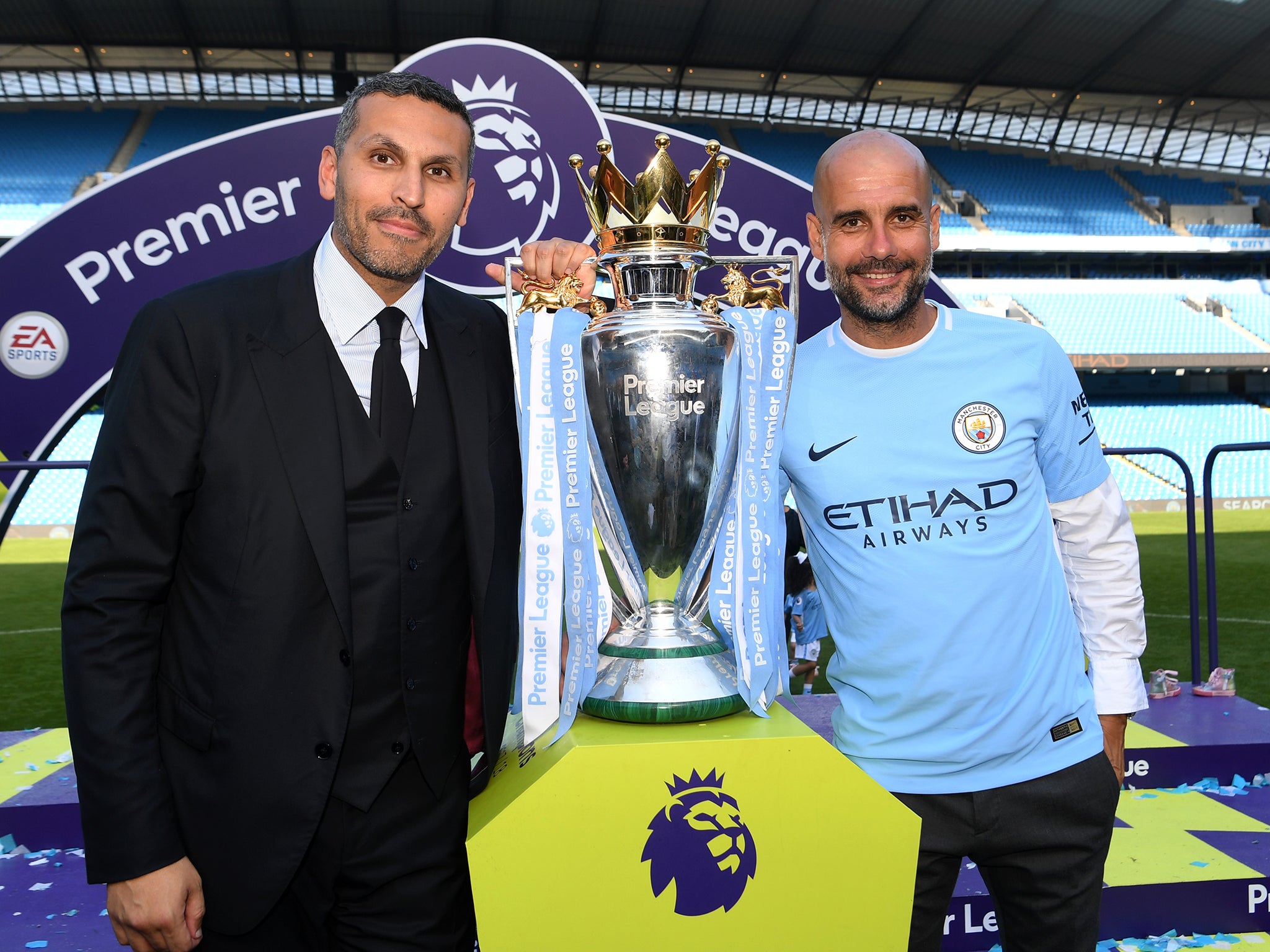Amnesty International accuses Manchester City owners of 'sportswashing' their country's image
Amnesty International have previously been critical of the Manchester City owners' human rights record

Your support helps us to tell the story
From reproductive rights to climate change to Big Tech, The Independent is on the ground when the story is developing. Whether it's investigating the financials of Elon Musk's pro-Trump PAC or producing our latest documentary, 'The A Word', which shines a light on the American women fighting for reproductive rights, we know how important it is to parse out the facts from the messaging.
At such a critical moment in US history, we need reporters on the ground. Your donation allows us to keep sending journalists to speak to both sides of the story.
The Independent is trusted by Americans across the entire political spectrum. And unlike many other quality news outlets, we choose not to lock Americans out of our reporting and analysis with paywalls. We believe quality journalism should be available to everyone, paid for by those who can afford it.
Your support makes all the difference.Amnesty International has accused Manchester City’s owners of trying to “sportswash” their country’s “deeply tarnished image” by financing the success of the Premier League side.
The Premier League holders are owned by Sheikh Mansour, a member of the Abu Dhabi royal family and deputy president of the United Arab Emirates. German publication Der Spiegel has published a series of allegations based on the whistle-blowing Football Leaks series, many of which involve Manchester City. They were named as seven one of seven sides to alleged to be planning a breakaway European super league, and their financial conduct has been questioned.
Der Spiegel allege that City have been trying to ease around Uefa’s Financial Fair Play rules by inflating sponsorship deals and hiding contracts. Arabtec, the largest construction company in the United Arab Emirates, was one of the sponsorship deals mentioned, but the firm is no longer listed as one of City’s regional partners.

Arabtec has repeatedly been criticised by Amnesty International for the way it treats migrant workers, and Der Spiegel claims that City ignored concerns raised by its own public relations experts ahead of signing a three-year regional sponsorship agreement in 2014, worth £7m a year.
“The UAE’s enormous investment in Manchester City is one of football’s most brazen attempts to ‘sportswash’ a country’s deeply tarnished image through the glamour of the game,” Amnesty International’s Gulf researcher Devin Kenney said.
“As a growing number of Manchester City fans will be aware, the success of the club has involved a close relationship with a country that relies on exploited migrant labour and locks up peaceful critics and human rights defenders.”
City have refused to comment on the allegations but said the reports are based on “hacked and stolen” material as part of a “clear and organised” attempt to tarnish the club.
Human Rights Watch and Amnesty International previously wrote to two senior figures in the Manchester council after being made aware of the council’s business links to the Abu Dhabi government. They asked them to ensure the commercial relationship did not “besmirch the city’s reputation” and urged them to support “victims of serious human rights violations.”
The City manager ,Pep Guardiola, said that he trusts his City’s conduct. “The club has made a statement on Friday about what happened, stolen emails. Of course I trust the club, what they have done,” he said.
“Of course we want to follow the rules. Uefa, Fifa and the Premier League, they do what they have to do. Believe me, I’m completely honest, I don’t know what happened, I’m a manager, focused on the pitch, the locker room.
“I am a manager. I’m completely out of how we handle this situation. I’m part of the club, I support the club. We want to do what we have to do in terms of the rules.”
Join our commenting forum
Join thought-provoking conversations, follow other Independent readers and see their replies
Comments